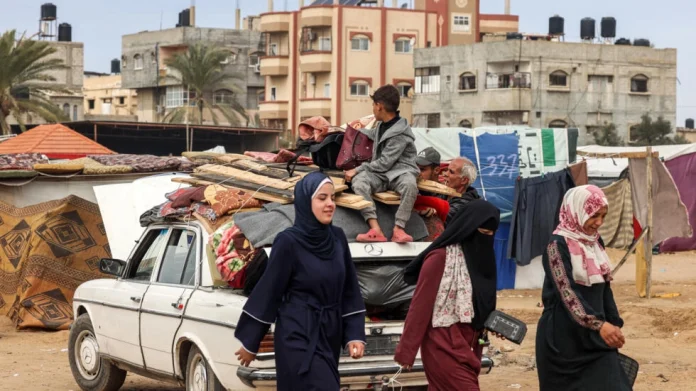Officials from the US, Egypt, Qatar and Israel met in Cairo on 13 February to arrange a possible deal between Hamas and Israel, FDD reports.
CIA Director William Burns, Qatari Prime Minister Mohammed bin Abdulrahman Al Thani Egyptian Intelligence Minister Major General Abbas Kamel, an Israeli delegation consisting of Mossad chief David Barnea and Shin Bet chief Ronen Bar participated. According to the Wall Street Journal, a US official said there was no breakthrough or breakdown in the talks.
The resumption of talks came after Israeli media reported that Hamas had dropped some of its demands from earlier talks on 7 February. The Biden administration had been pushing for the resumption of the talks. On 11 February, President Joe Biden discussed the issue with Netanyahu by telephone.
During a meeting with Jordan’s King Abdullah II on 12 February, Biden said the US was working on a deal that would provide for the release of hostages in Gaza in exchange for a six-week pause in fighting, “after which we can use that time to build something more durable.” Richard Goldberg, FDD Senior Advisor, said:
“No one in Washington should be under any illusion that Israel will agree to a deal that forms the basis of a permanent ceasefire without first destroying Hamas. Israel might agree to a short-term ceasefire for hostages, but there is broad consensus across the political spectrum that the Israel Defence Forces must complete the military objective of destroying Hamas.”
Joe Truzman, Senior Research Analyst at FDD’s Long War Journal, noted:
“Israel is faced with a challenging scenario in which it must navigate the delicate task of both bringing back all the hostages and ousting Hamas from power in the Gaza Strip. Hamas is aware of the tenuous situation Israel faces, and the terrorist group believes its only chance of maintaining power in the Gaza Strip is through a permanent ceasefire agreement. However, Israel is adamant that a permanent ceasefire is not an option and will only accept an agreement that does not include this stipulation.”
On 7 February, Hamas and Israel rejected a truce agreement reached as a result of the previous round of negotiations. In the final draft, Hamas demanded that Israel end the war and fully withdraw from the Gaza Strip, leaving Hamas in power, in exchange for the terrorist group’s release of all its hostages within 135 days.
Hamas also demanded that Israel release 1,500 Palestinian prisoners and take steps to reduce its sovereignty over the Temple Mount. Netanyahu rejected Hamas’ offer. He said during a televised speech that “submitting to Hamas’ ludicrous demands will not lead to the release of the kidnapped.” Netanyahu also said that Israel “will not go for anything other” than the total destruction of Hamas.
Having taken control of northern, central and most of southern Gaza, including the town of Khan Younis, Israeli forces may soon begin operations in Rafah, a town near the Gaza-Egypt border. The United States and other countries have expressed concern about possible Israeli operations in Rafah, the last Hamas stronghold to which many Gaza civilians have fled. On 12 February, Israeli special forces conducted an operation in Rafah, a town near the Gaza-Egypt border.
According to Israel Defence Forces (IDF) spokesman Rear Admiral Daniel Hagari, Hamas continues to hold 134 hostages taken on 7 October. The IDF believes that 29 of them have already been killed.
